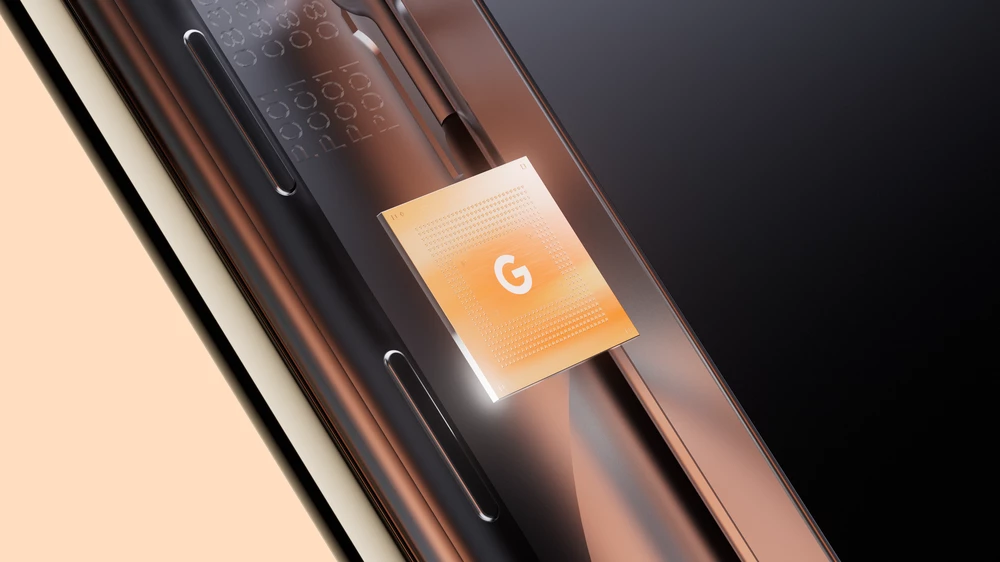Google's Pixel 5 smartphone was surprisingly unambitious, an affordable mid-ranger rather than a high-end flagship, prompting some to ask if the company was quietly planning to step back from manufacturing its own Android handsets. But no; after months of rumors, the company has decided to give a pre-launch "sneak peek" at an upcoming Pixel 6 and Pixel 6 Pro, complete with a brand new "Tensor" system-on-a-chip designed in-house to vastly accelerate AI and machine learning capabilities.
Basic details on the phones are fairly scant at this stage; they'll be visually defined chiefly by the chunky black camera bars that stretch across their backs, necessitated by new and larger camera sensors. The 6 Pro will run three cameras on the back, including a 4x optical zoom telephoto. The standard model won't get this zoom lens, but its other two cameras will be the same.
They're both reasonably big phones, with the Pro a touch larger, and although screen size and resolution haven't yet been officially announced, we do know the refresh rates will differ, with the standard at 90 Hz and the Pro at 120 Hz. The bodies are aluminum – the Pro polished and the standard matte, with a range of muted colors available. They'll run Android 12 on launch, complete with the new "Material You" design feel.
The big news here though is the new Tensor processor chip. Like Apple, Google has moved to design and optimize a chip specifically around what it wants to do with the new Pixel phones. AI and machine learning are the keys here; the new phones will perform more of this kind of processing locally rather than uploading data to the cloud.

This will take the Pixel's intelligent camera and video capabilities up another level or two, as well as audio-related features like speech recognition, live captioning, transcription and live translation. "For users, this means entirely new features, plus improvements to existing ones," says Google."
It's also designed to boost security, and you can be fairly certain Google has significantly improved efficiency alongside the Android operating system, so battery life should get a boost along with speed and capability.
So Google isn't stepping back from smartphone hardware at all; indeed, the Tensor represents a significant commitment to hardware, which is good news for those of us who enjoy the Pixel series for its raw and unadorned version of the Android operating system. And if Google's making its own chips now, surely it's got other hardware plans in the pipeline too.
Full specs and details on the Pixel 6 and Pixel 6 pro will drop in the coming months.
Source: Google






